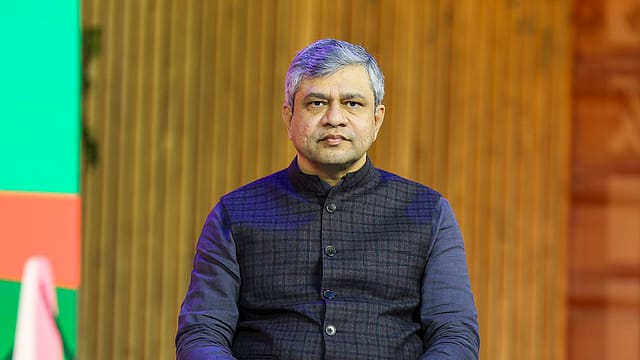Govt to announce rules to curb deepfake content on social media
ADVERTISEMENT

The government on Thursday commenced an exercise for assessing and drafting necessary regulations to curb the menace of deepfake content posted on social media platforms.
This comes after Minister of Railways, Communications and Electronics & IT Ashwini Vaishnaw interacted with representatives from academia, industry bodies and social media companies on the need to ensure effective response to deepfake.
"We will start drafting the regulation today itself, and within a short time we will have a new set of regulations for deepfakes. This could be in the form of amending existing framework or bringing new rules, or new law," Vaishnaw tells reporters.
It was agreed during the discussion that government, academia, social media companies and NASSCOM will jointly work towards responding to deepfake. It was agreed that within the next 10 days, actionable items on the following four pillars would be identified:
Detection: Deepfake content should be detected before and after such content is posted
Prevention: There should be an effective mechanism for preventing propagation of deepfake content
Reporting: Effective and expeditious reporting and grievance redressal mechanism should be available
Awareness: Mass awareness on the issue of deepfake should be created
"We will have our next meeting in the first week of December that will be on follow-up action on today's decisions, and also on what should be included in the draft regulation," Vaishnaw says.
"All the companies have shared our concern. They have understood that this is not free speech, that this is something very harmful. They have understood the need for regulation," he adds.
Deepfake has emerged as a serious threat to democracy and social institutions across the world. Propagation of deepfake content via social media platforms has aggravated this challenge.
The Ministry of Electronics and Information Technology (MeitY) has advised social media intermediaries to exercise due diligence and take expeditious action against deepfake. The ministry will invite comments from the public on MyGov portal.
A follow-up meeting with relevant stakeholders will be held again in the first week of December 2023 to finalise the 4-pillared structure, the government says, adding it remains committed to combat the growing threat of deepfake by leveraging technology and fostering public awareness.
The Centre had earlier issued an advisory to social media intermediaries to identify misinformation and deepfakes. The intermediaries were reminded that any failure to act as per the relevant provisions of the IT Act and Rules would attract Rule 7 of the IT Rules, 2021 and could render the organisation liable to losing the protection available under Section 79(1) of the Information Technology Act, 2000.
"It is a legal obligation for online platforms to prevent the spread of misinformation by any user under the Information Technology (IT) rules, 2021. They are further mandated to remove such content within 36 hours upon receiving a report from either a user or government authority. Failure to comply with this requirement invokes Rule 7, which empowers aggrieved individuals to take platforms to court under the provisions of the Indian Penal Code (IPC). It is imperative that platforms take proactive measures to combat this threat," Union Minister of State for Skill Development & Entrepreneurship and Electronics & IT Shri Rajeev Chandrasekhar said earlier this month.